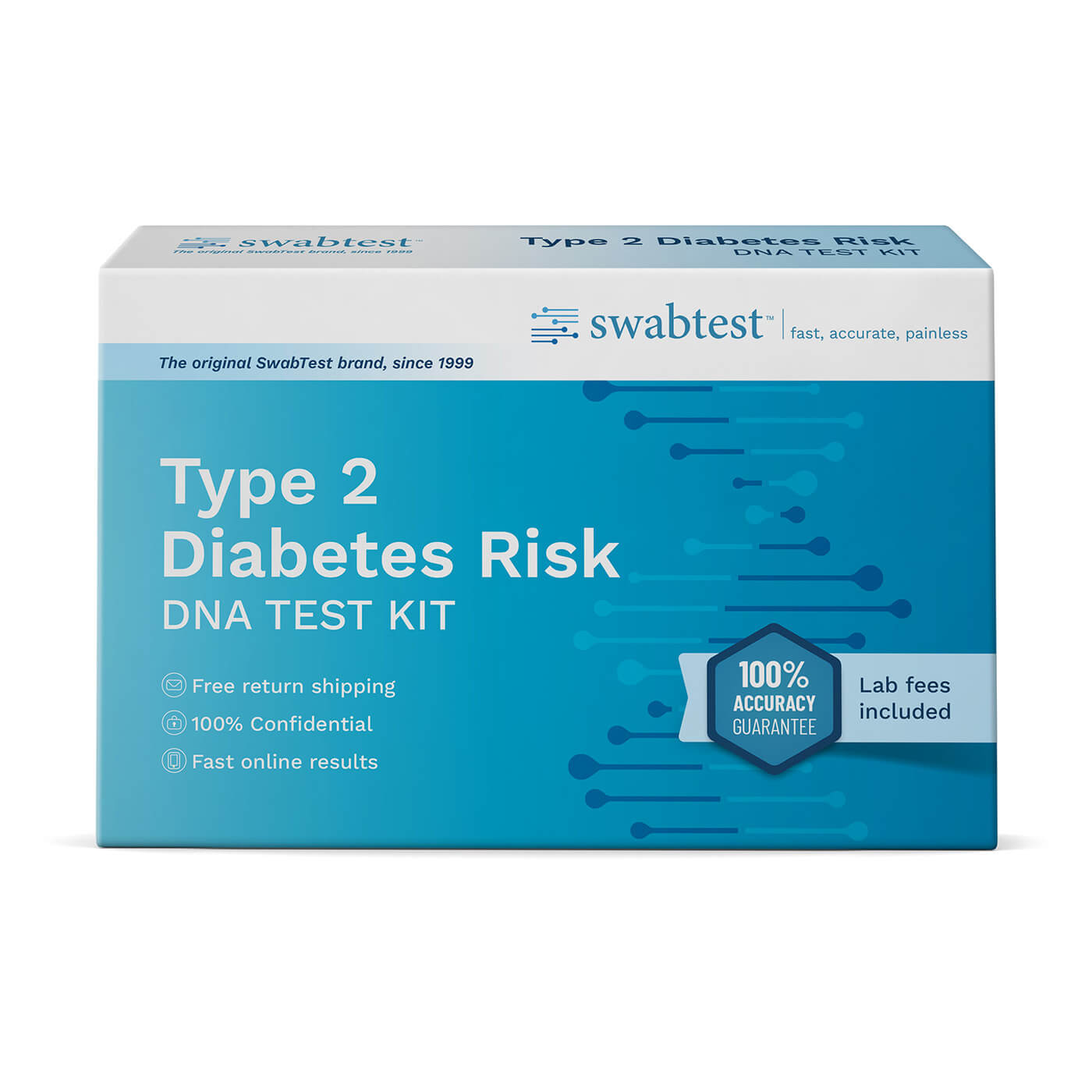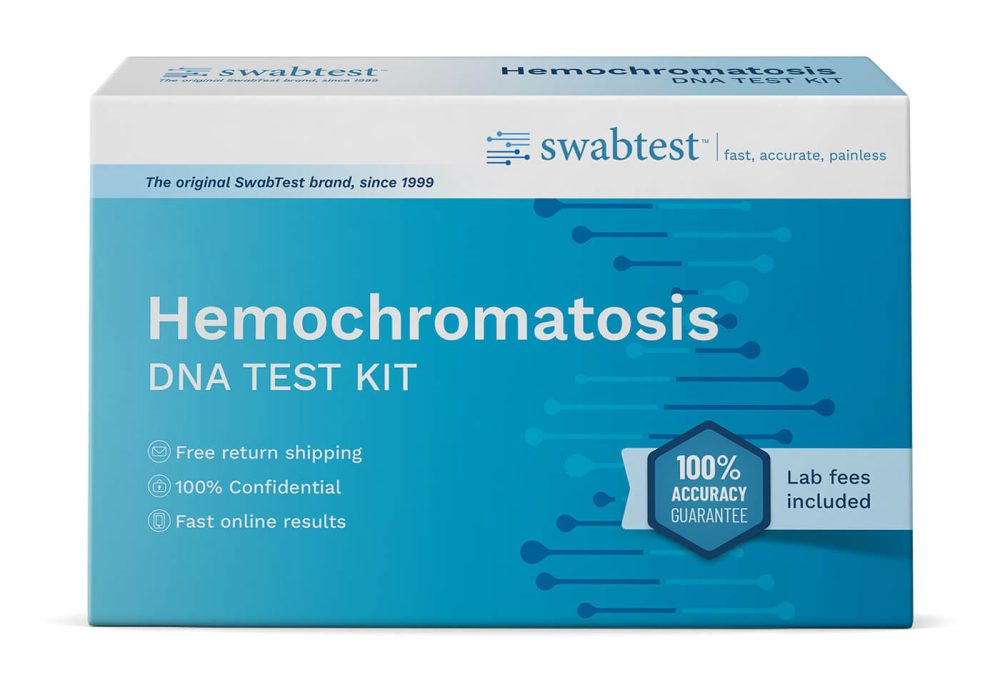DNA Type 2 Diabetes Risk Test
Uncover your genetic risk of developing Type 2 Diabetes with this DNA test. Empower proactive lifestyle choices and health monitoring based on your DNA.
- Analyzes genes that affect glucose regulation, fat metabolism, and insulin response
- Stay Ahead with Early Insights
- Simple, At-Home Testing
- 2X testing guarantee
- AABB, ISO17025 & CLIA accredited lab
$349.00
Description
Type 2 diabetes is a metabolic disorder where individuals with the condition are unable to regulate the sugar levels in their blood.
While it is not curable, type 2 diabetes is both manageable and preventable. Simple lifestyle modifications such as managing your weight, reducing fat intake, regular exercise, and switching to a healthy diet are useful for both managing and reducing the risk of developing type 2 diabetes.
Uncover your genetic risk today, so you can take preventative measures to reduce your risk.
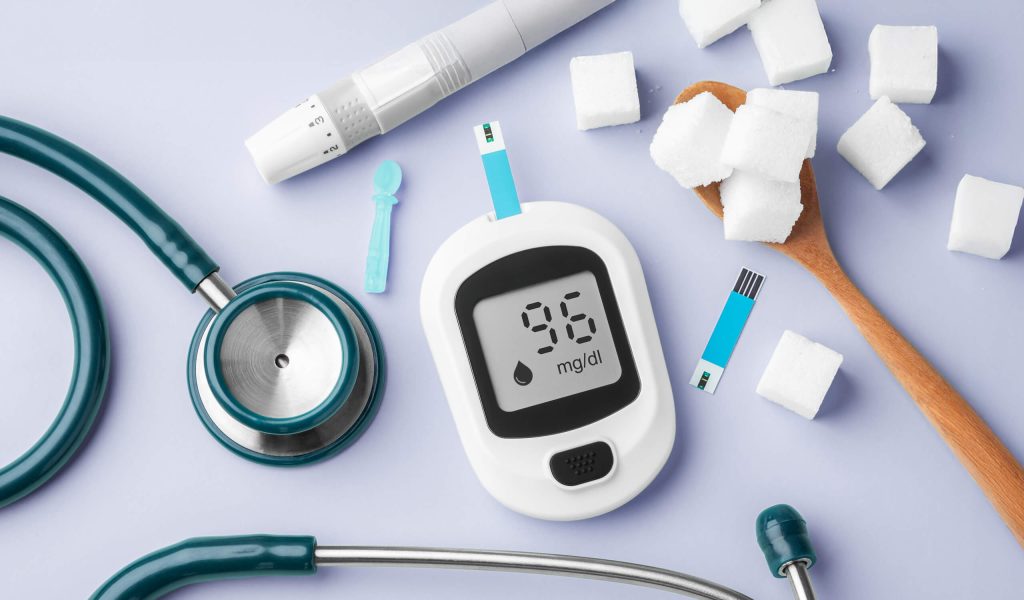
Description
Type 2 diabetes is a metabolic disorder where individuals with the condition are unable to regulate the sugar levels in their blood.
While it is not curable, type 2 diabetes is both manageable and preventable. Simple lifestyle modifications such as managing your weight, reducing fat intake, regular exercise, and switching to a healthy diet are useful for both managing and reducing the risk of developing type 2 diabetes.
Uncover your genetic risk today, so you can take preventative measures to reduce your risk.
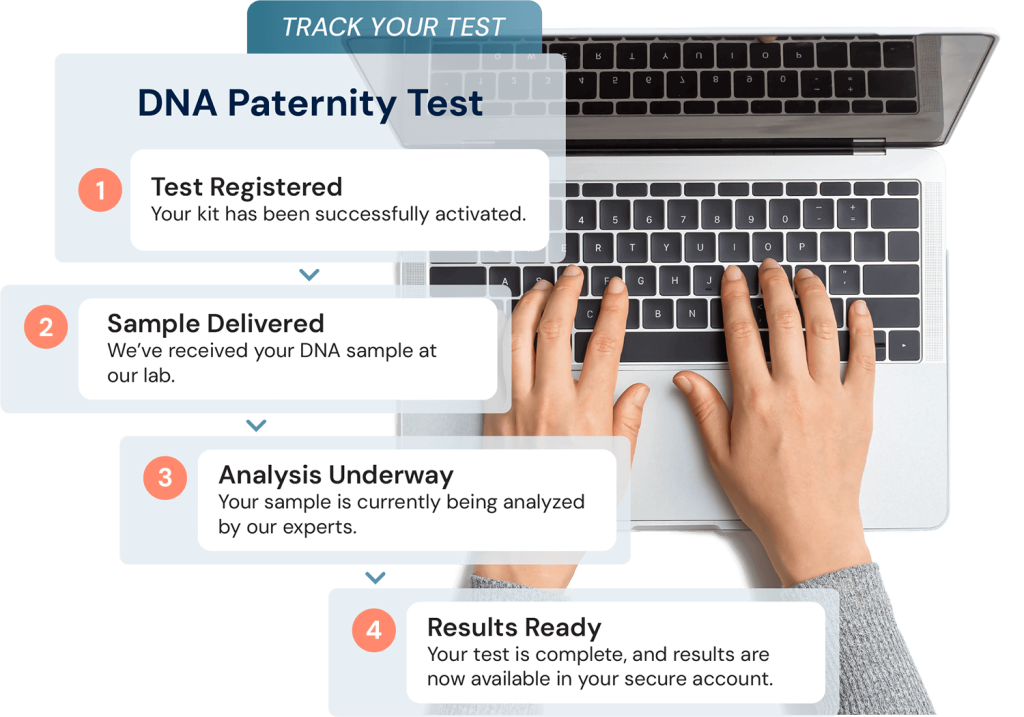
Factors that increase your risk of Type 2 diabetes
• Genetic variation
• Family history of type 2 diabetes
• Obesity and fat accumulation (around the abdomen)
• Lack of physical exercise
• Ethnicity (Africans and American Indians have a higher risk)
• Prediabetes – elevated blood sugar
• Gestational diabetes
• Polycystic ovarian syndrome
Genetic variants tested
Genetic is one risk factor associated with type 2 diabetes. This DNA test detects the following variants linked to an increased risk of developing this condition.
ACC2 – Reduced response to insulin
ADCY5 – Inhibited secretion of insulin
FABP2, FTO – Increased uptake of saturated fats
ADIPOQ, FADS1, GLUT2, MTNR1B and TCF7L2 – Increased fasting glucose levels
GCKR – Reduced fasting glucose levels
GCK, HNF4A – Reduces beta cell function
SLC30A8 – Disrupted insulin signalling
SOD2 – Increased reactive oxygen species
MADD – Impaired proinsulin-to-insulin conversion
Regulating blood sugar levels
Glucose is the primary source of sugar found in our blood, and its levels are tightly controlled. Following a meal when blood glucose levels are elevated, the pancreas releases insulin, which signals for the removal of glucose from our blood so it can be stored as glycogen in our muscle, liver, and fat cells for later use. Between meals glycogen is broken down to provide energy, to keep our hearts pumping and our muscles moving.
Type 2 diabetes is an extreme example of this careful control going awry when our bodies are either unable to produce insulin or no longer respond to insulin (aka insulin resistance). When blood sugar levels become severely high, the kidneys, which normally filters waste from our blood into urine, start excreting glucose into our urine as a last-ditch effort to lower blood sugar levels. Extremely high blood sugar levels can also damage the kidneys, resulting in some of the other symptoms associated with diabetes such as weight-gain because our bodies retain more water and salts.
Related Products
Related products
-
Health & Wellness
DNA Cardiovascular Disease (ApoE) Test
$195.00 Add to cartDetects the APOE variant linked to late-onset Alzheimer’s
-
Diet & Fitness
DNA Fitness Test
$249.00 Add to cartUncover how your genes impact strength, endurance, and recovery.
-
Sale!
 Out of stock
Sexual Health
Out of stock
Sexual HealthSTD + HIV Test
Screen for chlamydia, gonorrhea, trichomoniasis and HIV infections.
$149.00Original price was: $149.00.$99.00Current price is: $99.00. Read more -
Shop All
DNA Paternity Test
The definitive way to establish paternity for a father and child.
$180.00Original price was: $180.00.$99.00Current price is: $99.00. Select options This product has multiple variants. The options may be chosen on the product page
Related products
-
Shop All
DNA Grandparent Test
Determine the likelihood that you’re the true biological grandparent.
$271.00Original price was: $271.00.$149.00Current price is: $149.00. Select options This product has multiple variants. The options may be chosen on the product page -
Health & Wellness
DNA Cardiovascular Disease (ApoE) Test
$195.00 Add to cartDetects the APOE variant linked to late-onset Alzheimer’s
-
Diet & Fitness
DNA Fitness Test
$249.00 Add to cartUncover how your genes impact strength, endurance, and recovery.
-
Diet & Fitness
DNA Lactose Intolerance Test
$149.00 Add to cartFind out if your genes affect how your body digests dairy.
Related Products
$271.00 Original price was: $271.00.$149.00Current price is: $149.00.
$271.00 Original price was: $271.00.$149.00Current price is: $149.00.
$271.00 Original price was: $271.00.$149.00Current price is: $149.00.
Related products
-
Diet & Fitness
DNA Nutrition Test
$249.00Discover how your DNA influences your body’s nutritional needs.
-
Diet & Fitness
DNA Lactose Intolerance Test
$149.00Find out if your genes affect how your body digests dairy.
-
Sale!
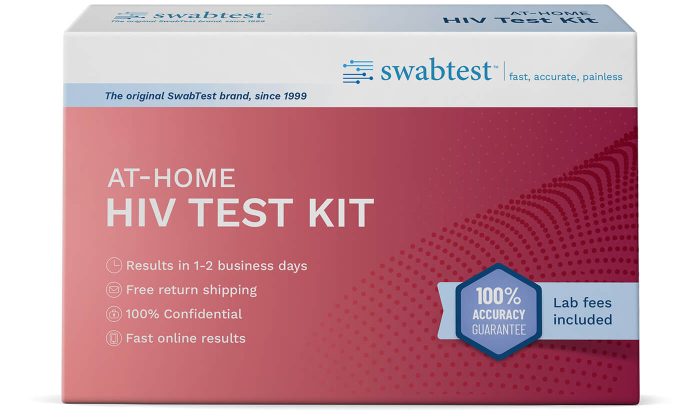 Out of stock
Out of stock
-
Shop All
DNA Grandparent Test
Determine the likelihood that you’re the true biological grandparent.
$271.00Original price was: $271.00.$149.00Current price is: $149.00. This product has multiple variants. The options may be chosen on the product page

